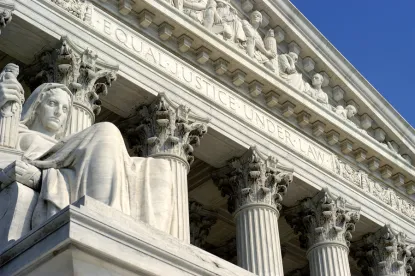The Supreme Court of the United States is poised to decide a critical question under the Affordable Care Act: whether the federal government can subsidize health insurance premiums for residents of states that did not establish a state health insurance exchange (King v. Burwell).
A ruling that subsidies are not available would have dramatic impacts on purchasers of individual health insurance, health insurers, health care providers and employers. If the Supreme Court does rule that subsidies are not available, a pressing question will be whether the ruling will go into effect immediately, or whether Congress, the administration and states will have some time to take steps to address the ruling.
-
2015 impact. The Supreme Court’s decision would not result in claw-backs of tax credits that have already been paid out in the first half of 2016, and may not result in immediate termination of subsidy payments. The Supreme Court could provide some breathing room by postponing the ruling’s effect. At least one amicus brief asked the Supreme Court to do so, and at oral argument, several justices expressed concern about the immediate consequences of a ruling against subsidies and inquired about making a decision prospective.
Even if the Supreme Court does not postpone the ruling’s effect, the tax code gives the administration authority to apply court decisions prospectively. Since tax credits are paid in advance, and then administered and reconciled annually, the administration would likely take the position that it would not claw-back premiums already paid. It might also take the position that a prospective application of the ruling would begin with calendar year 2016.
-
2016 impact. Questions will also mount quickly for 2016: will premium subsidies be available next year? Health insurers will have to decide what products to offer, and at what prices, well before 2016 begins. Some relevant state and federal regulatory deadlines have already passed, and others are quickly approaching. If subsidies are unavailable, the pool of purchasers of individual health insurance will change, and may affect insurers’ decisions about which insurance products to offer and at what price. Those decisions will need to be made well before the end of the year.
At the same time, any state that is considering establishing an exchange will face significant logistical challenges to do so in time for 2016. In addition, key deadlines for establishing exchanges have already passed, so there is no clear pathway for states to quickly set up an exchange. Some states told the Supreme Court that when they decided not to establish exchanges, they were unaware that their residents would be ineligible for subsidies. Will the Supreme Court’s opinion (or subsequent action by the administration and Congress) give states a sufficient opportunity to reconsider their choice in light of the Supreme Court’s ruling?





 />i
/>i

